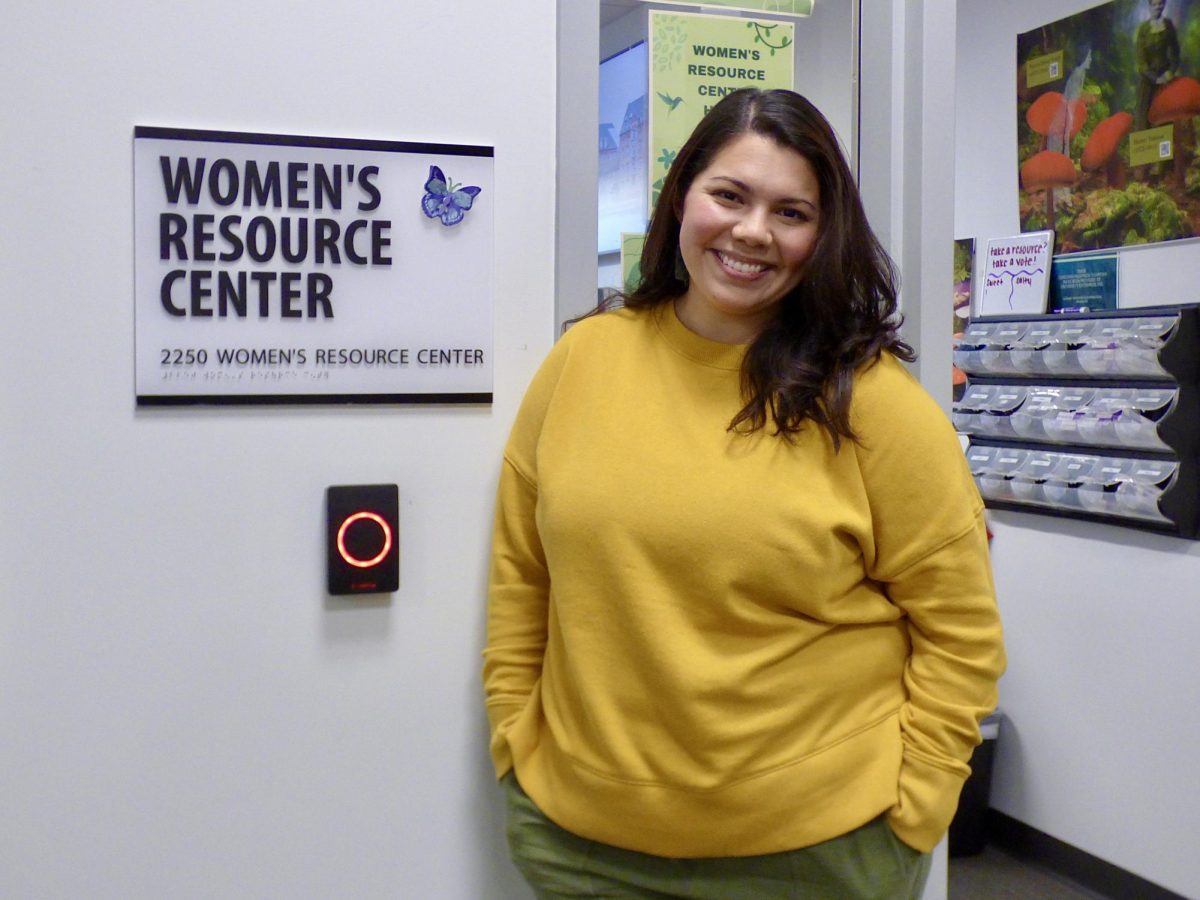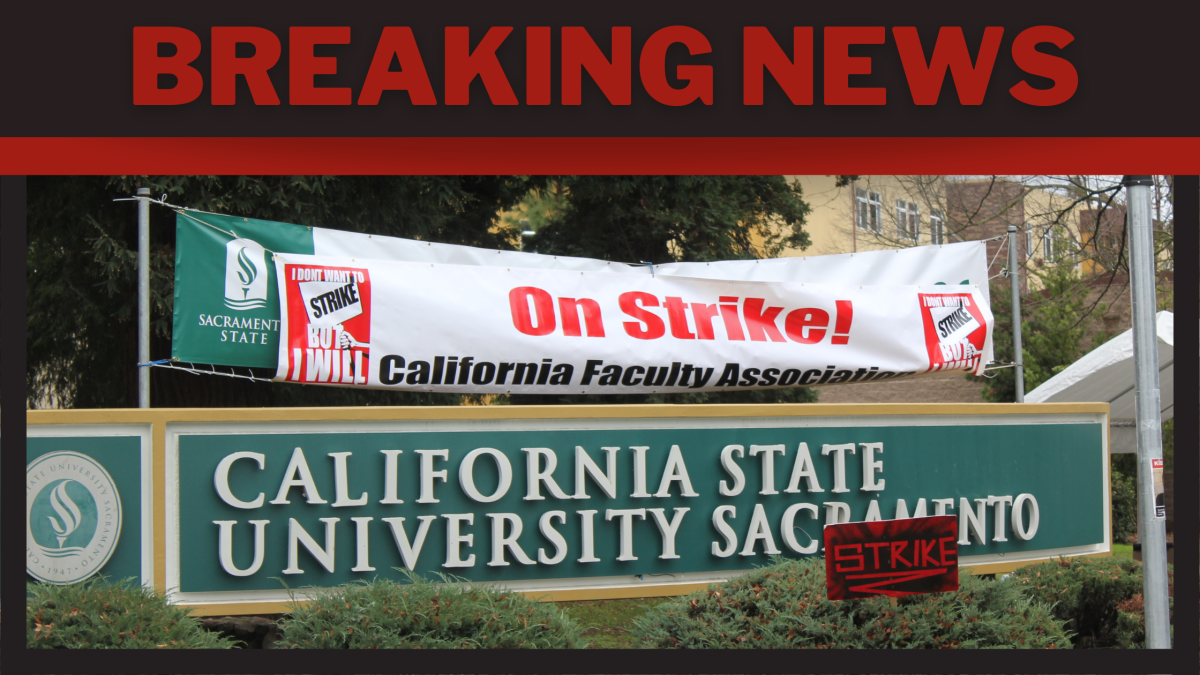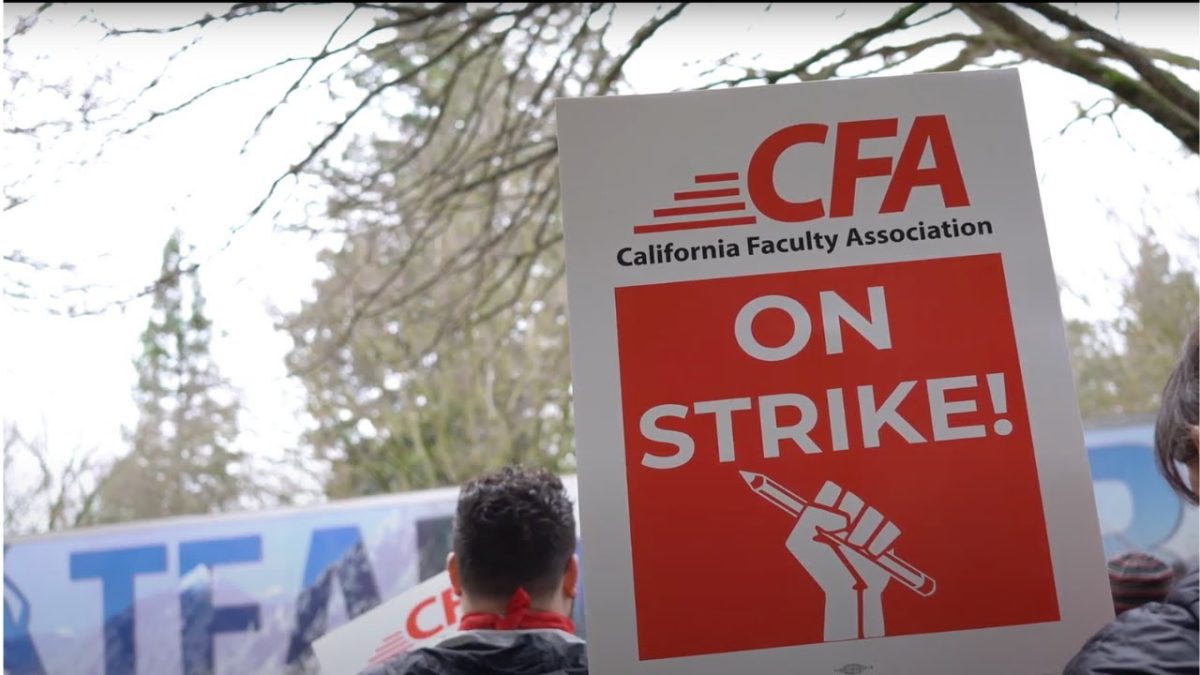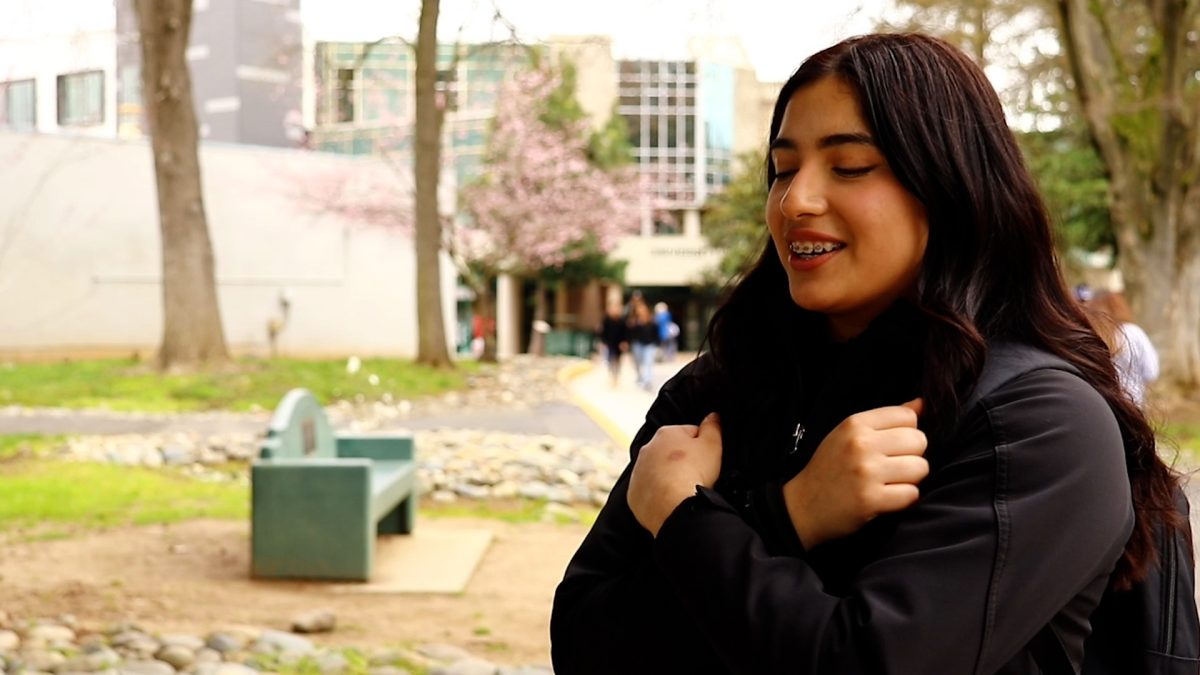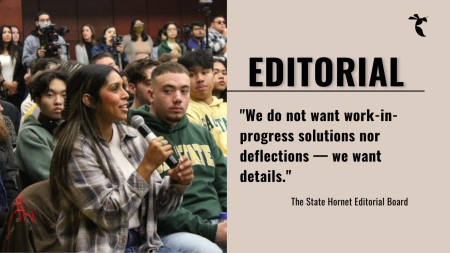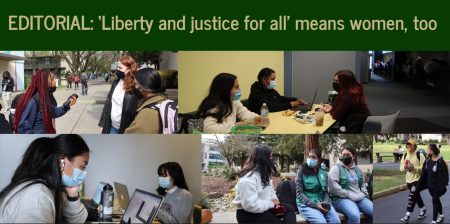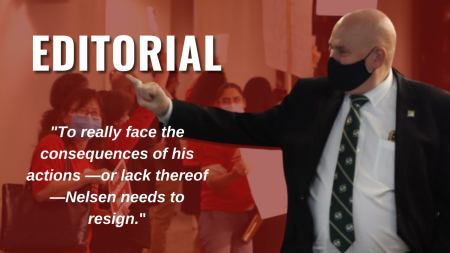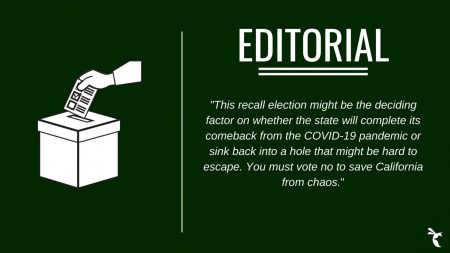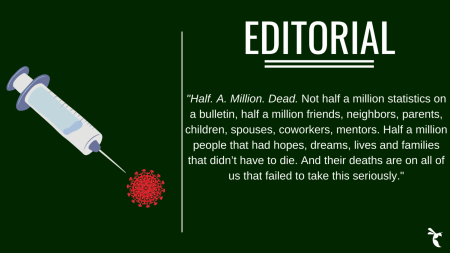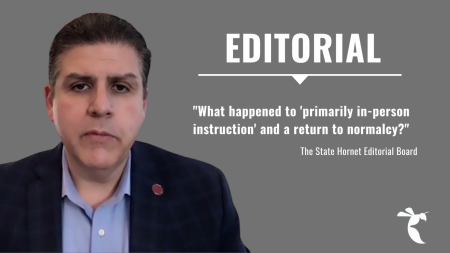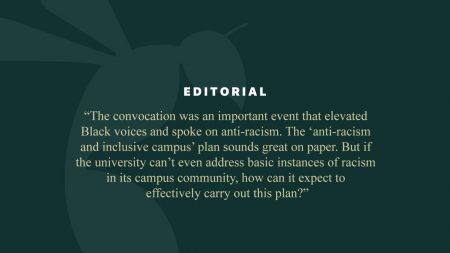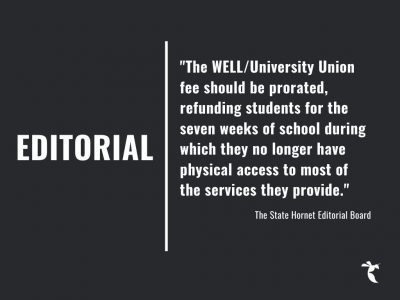EDITORIAL: ASI campaign rules don’t reflect reality
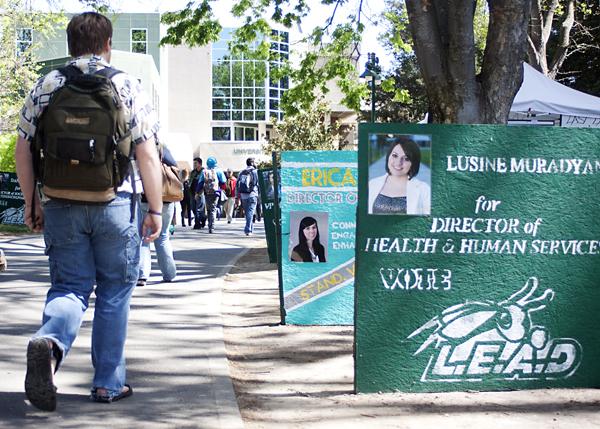
Three days into the ASI Board of Directors campaign regulation sized signs line the pathways to the student union advertising candidates and parties in preperation for the annual election.
April 4, 2012
The election candidates for Associated Students Inc. Board of Directors positions are held to a set of bylaws and regulations during a campaign that do not reflect political campaigning laws outside of Sacramento State.
These bylaws, listed in Article V of the ASI election code, include everything from a limit on the number of signs each candidate is allowed to the restrictions and dates each candidate may begin her or his campaign.
The election code was adopted in 1991 but revised as recently as November. One of the rules prohibits candidates from speaking to the media prior to the campaign period about their candidacy as it can be construed as an attempt to begin campaigning early. Campaigning outside of the 30-day restriction would result in a campaign violation complaint or even disqualification.
These restrictions do not adequately reflect the reality of political campaigning. Politics are highly competitive and strategic.
These characteristics of campaigning help present candidates to the public when candidates are looking to be elected. The purpose of a campaign is to get the candidates’ names and concerns circulated in the public sector to entice voters and raise support.
“Neither candidates nor interested students may begin campaigning until after receipt of notification of eligibility. Notification of eligibility will be made by the ASI Executive Director. The campaign period may not begin sooner than 30 calendar days before the first day of voting. The time and date will be designated in the Candidate Elections Packet,” according to Article V of the ASI election code.
ASI didn’t return phone and email interview requests to The State Hornet before press time.
Thirty days prior to an election is not enough time to become an informed student voter. The sheer number of candidates, elected positions and issues affecting the student body essentially impacted by the outcome of the election is overwhelming.
ASI has stated the restrictions are an attempt to keep campaigns fair, but politics aren’t about what’s fair or unfair. Politics are about a candidate working to get voter support so he or she can get elected.
Limiting the student exposure to the people who want to represent the student body is not only a poor decision for the candidates and potential officers, it doesn’t reflect reality and it’s a poor way to gain student support. If ASI is looking to increase voter turnout of 13 percent, a longer and more public campaign period could aid in getting students to the polls.
Allowing interested parties and potential candidates the opportunity to campaign freely and speak to the media would allow the student body the time and means to become more informed and more involved in campus politics. Campaigning for ASI should emulate the real world.
What’s best is students are allowed to familiarize themselves with the candidates and issues that face the campus community and make an informed decision.
Campaigning supports competition and competition is good for the campus. When candidates are allowed to campaign early, it gives the campus a chance to research options. Campaigning or speaking to the media allows students access to candidates and a way to spark student interest in ASI elections and campus politics.
The Editorial Staff can be reached at [email protected]






